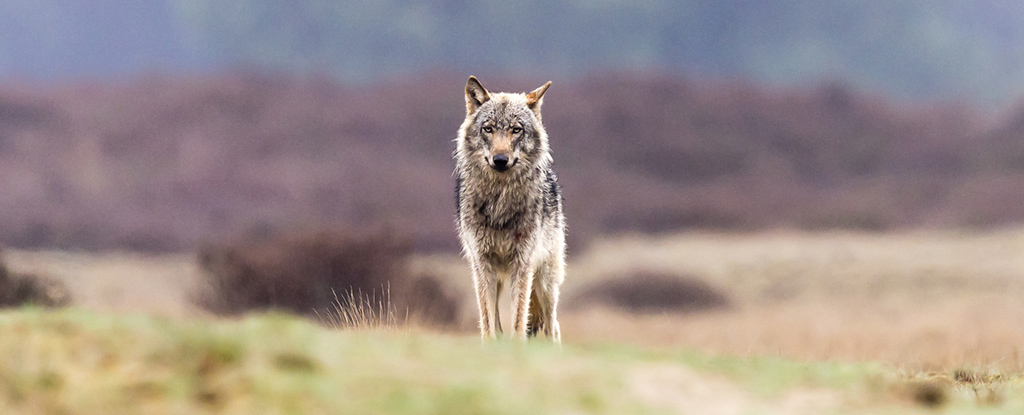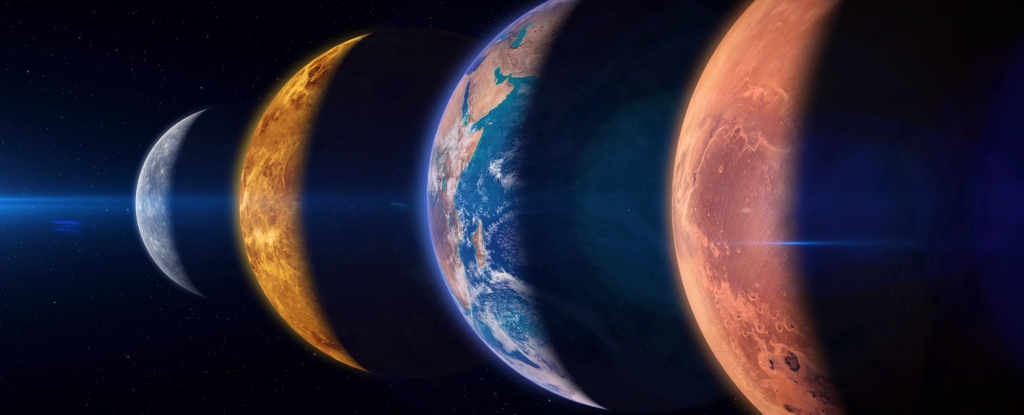“Stop the world, I want to get off.” This exasperated phrase has been around since the 1950s, used in classic and modern music alike.
But if the world were to really stop spinning, the consequences would belong less in a romantic musical and more in an apocalyptic horror film.
Imagine you’re walking down a sunny beach somewhere along the equator. The Earth beneath you is spinning eastward at 1,040 miles per hour (1,674 kilometers/hour).
What if the Earth stopped suddenly?
But since you, the sand, and everything else in your general vicinity are moving at the same speed, your stroll feels slow and leisurely.
Then the world beneath you stops, and you get off. Rather, you get thrown off.
Thanks to Newton’s first law of inertia, you initially go flying eastward at roughly 1,040 miles per hour. No matter where you land, be it ocean or ground, the force of impact would probably kill you.
“Water, too, would feel this sudden acceleration,” said Joseph Levy, associate professor of Earth and environmental geosciences at Colgate University. So you’d likely see the ocean sloshing around quite a bit before impact.
Trees and buildings wouldn’t be safe either, despite being rooted in the ground. “Earth materials are strong under compression but very weak under tension,” Levy said.
In other words, that nearby brick building can hold hundreds of people because its floors and support beams become compact under their weight.
But the inertia shoving the building eastward from Earth’s sudden stop would be much stronger than the mortar holding the bricks together, so the whole structure could rip apart, Levy said.
If it makes you feel better, your hypothetical cousin in Antarctica would likely survive with some bruises. “Near the poles, the axis of rotation is much smaller, so the rotational speed is much smaller,” Levy said.
But you’d have to be very close — within 89.9 degrees latitude, Levy said, or about seven miles from the poles. At that distance, you’d probably just stumble forward at walking speed.
But your friends in Denmark or Australia probably wouldn’t make it. Most places humans inhabit are far enough from the poles that their residents would still go flying at hundreds of miles an hour.
What if the Earth stopped spinning gradually?
“In natural systems, nothing really ever comes to a complete stop instantly,” Levy said.
So what if the Earth slows down over days or weeks?
A gradual slowdown could keep you from careening into the sky, but once it stopped, you’d still be in a lot of trouble.
“Over the course of the year as the Earth orbited the sun, half the planet would be in night and half in full light, but the half would be constantly changing over the course of the year,” Levy said.
Instead of 12 hours, a “day” could last six months. The nonstop sun would roast nearby crops and evaporate much of the water on your half of the globe, Levy added.
The following six-month-long night probably wouldn’t be much better. A lack of light and warmth would likely kill off many remaining plants and freeze water into ice sheets.
Higher latitudes might be safer, as the sunlight wouldn’t be too intense near the poles, Levy said. But you’d have to get used to a nomad lifestyle, forever chasing daylight around the globe.
You might have to deal with some unexpected weather, too.
On a spinning Earth, most solar radiation hits the planet’s equator. “Broadly speaking, warm air rises over the equator, and falls over the poles after it cools off,” Levy said. Ocean currents follow a similar up-down cycle.
But when only half the planet gets intense sunlight for months on end, the planet gets a second, sideways temperature gradient, which makes predicting the weather twice as complicated.
“Winds would whip across the terminator — the shadow line — bringing cold air back from the night side, where it would warm and rise on the day side,” Levy added.
Could the world ever really stop spinning?
Don’t panic, but the Earth’s rotation is slowing downthanks to a process called tidal braking.
The gravity of our moon creates an infinitesimally small drag on our planet’s spin, so every century, Earth’s rotation slows down an extra 2.3 milliseconds, according to NASA.
But it’s unlikely the moon would ever stop the Earth completely. “The Earth is much larger than the moon and has much more angular momentum as a result,” Levy said.
One way to significantly slow Earth’s rotation would be if humanity treated it like a giant energy source. For example, we could theoretically use Earth as a flywheel system, storing the kinetic energy from its spin to apply to our energy needs.
“If you used the spinning momentum of the planet to meet all human energy needs, it would still take something like 1 million years to slow the planet down to a stop,” Levy said.
It’s virtually impossible for any objects in space to halt the Earth’s rotation before then. “The angular momentum of the Earth is too great for anything but a complete cataclysm to slow it down,” Levy said.
So the world won’t be stopping for you to get off any time soon — and that’s probably a good thing.
This article was originally published by Business Insider.
More from Business Insider:





